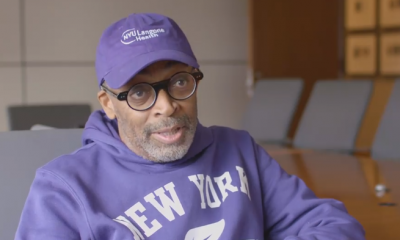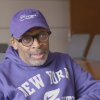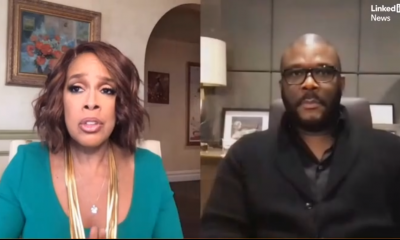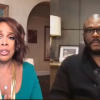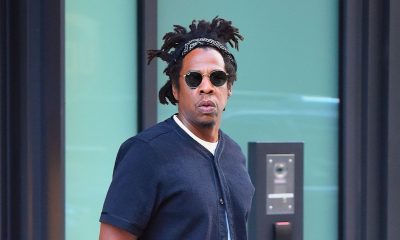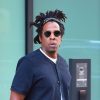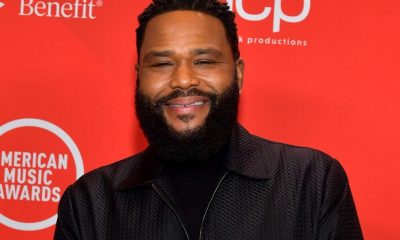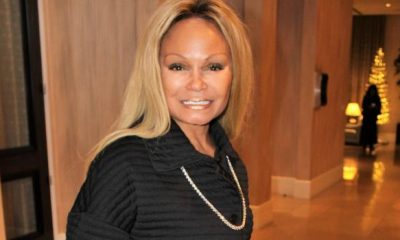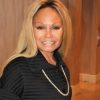Business & Health
FUBU Founder Offers Advice, Personal Stories on Succeeding as an Entrepreneur
Daymond John, a founder of the groundbreaking FUBU clothing label, offers advice for entrepreneurs in the today’s economic environment as well as insight into his journey as a businessman and motivational speaker.
By Christopher Windham
Human Nature magazine
Daymond John helped revolutionize the fashion industry in the 1990s, when he and his Queens, NY friends founded the fashion label FUBU – “For Us, By Us.” Since then, John has transformed his broad business knowledge and mellow charisma into success on national TV, in book publishing and the fashion industry.
John is also a noted business, branding and motivational speaker, who provides brand consulting services to a diverse roster of businesses, including several Fortune 500 companies.
John’s entrepreneurial flavor is a cross between hip-hop mogul Russell Simmons and real estate tycoon Donald Trump, who transformed their core business knowledge and personalities into results in other industries and mediums.
John can be seen regularly on ABC’s “Shark Tank,” where budding entrepreneurs try to convince John and a panel of self-made millionaires to invest in their businesses. John has thrived on show with his sound business advice, investment risk-taking and sensitivity to the contestants’ dreams.
Born in the Hollis neighborhood of Queens, the home of hip-hop legends LL Cool J, Run DMC, and Simmons, who John aspired to be like in the early days of hip-hop.
“I’ve had the luxury to see Russell go from 0 to 60 and I wanted to be a version of him,” he says.
In 1992, John and his friends sold $800 worth of hats in one day, helping the group realize the potential of urban wear. John extended the marketing strategy pioneered by Simmons that used hip-hop stars to sell apparel.
Instead of using hip-hop to market clothing manufactured by mainstream corporations, John showed the enormous financial potential of hip-hop inspired clothing labels. West coast designer Karl Kani also made significant contributions in advancing hip-hop fashion, as has Simmons with his Phat Farm clothing line.
FUBU would eventually spread from music video sets and boutiques to department stores across the world. By 1998, revenues at the company toppled $350 million. Today, FUBU has heavy international sales and involved in key partnerships and license deals with Samsung and Pietrafesa Corporation.
John offers Human Nature advice for entrepreneurs in the today’s economic environment as well as insight into his journey as a businessman.
What are some of the traits that every entrepreneur should have?
They should always have honesty and discipline. They should be a discipline person who understands they’re not going to work 24 hours a day, but 48 hours a day. They also always have to have desire. The desire is that you’re going to get knocked down as many times as you’re going to get knocked down, and get back up because, at end of day, you’re going fail way more times than you’re going to succeed. If they have that along with preparation, they will succeed.
Should entrepreneurs of color look to launch businesses targeting their community or should they broaden their ideas into more mainstream businesses?
You can always start off with selling something to your community. You always have to start in your community where there’s going to be a lot of trial and error, and where you’re going to get an honest opinion. You also want to make all the mistakes at the small level. If you try to suit up and make all the mistakes at the larger level it’s going to be detrimental and could potentially destroy your business.
Who did you look to guidance when you first dreamed of becoming an entrepreneur?
I looked to personal mentors in my life. I looked to Donald Trump, Russell Simmons, LL Cool J, Run DMC — the people who were in my neighbor. Donald wasn’t in my neighbor the rest of them were.
In discussing the early days of FUBU, you seemed to have set modest goals at first. How did it evolve into such a big brand?
I was always pie in the sky but it was a combination of desire and doing something I loved. It wasn’t that [I said} I’m going to be Russell. I was at the time hoping to have a boutique. That was my highest aspiration. But still the boutique in the ghetto was just as the grand as Russell owning a label. It was something of my own. So now I had my stuff in 1,000 boutiques around the world instead of just one. It’s the same at the end of the day.
What sort of soul searching should young entrepreneurs do before deciding to start a business?
Young entrepreneurs or older entrepreneurs, the only thing you’ll ever be successful at is doing something you love. I can’t necessarily say you’ll be monetary successful. You may have another form of success with gratitude. But you will be guaranteed not to have monetary success for long if you’re doing something just for the aspect of money. Money is a very slippery, divisive tool.



